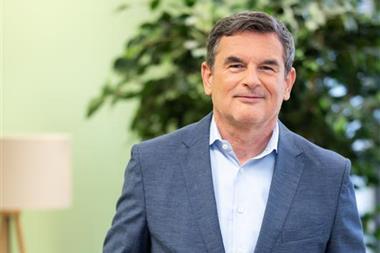GERMANY – Germany’s pension protection fund helped the country’s Pensionsfonds avoid posting a deficit in the quantitative impact study (QIS) for the revised IORP Directive, but technical reserves still soared by 50% for some schemes, according to Towers Watson.
Speaking at the aba annual conference in Berlin, head of actuarial consulting Alf Gohdes revealed details of the QIS’s impact on Pensionskassen and Pensionsfonds.
In total, he said, technical reserves before shocks increased by 40% when taking into account the new solvency requirements in the QIS, while for Pensionsfonds the increase was 50%.
Pensionsfonds – unlike Pensionskassen – are part of the pension protection scheme and therefore able to absorb all shocks simulated in the study.
Similarly to German MEP Thomas Mann, who gave a speech on the first day of the conference, Gohdes said he was optimistic the European Commission would eventually abandon the idea of applying Solvency II-type rules to IORPs.
The actuary noted that Germany was “not alone” in struggling with a major hike in technical reserves under the new solvency rules, as they had also soared in Belgium (27%), Ireland (72%), the Netherlands (24%) and the UK (40%), and by “around €900bn in total”.
However, he also acknowledged the need for “some form of unified model” for supervision, as well as a risk-based approach that would include pension protection schemes and sponsor support in some capacity.
Meanwhile, Carsten Velten – head of occupational pensions at Deutsche Telekom and head of the Pensionsfonds working group at aba – said transfers to Pensionsfonds had slowed considerably, adding that this was “no surprise” due to a number of “major obstacles”.
In the 11 years since the launch of the legal framework, only 31 Pensionsfonds have been created.
One of the industry’s long-term demands is soon to be met, however.
In a first reading, the German Parliament agreed to allow lump-sum payments from Pensionsfonds on retirement – something that had been allowed in all other pension vehicles but Pensionsfonds.
But Peter Bredebusch, head of the LVM Pensionsfonds-AG, highlighted other unresolved issues, such as the ban on transferring future services.
Because of this legal restriction, only the assets of retirees have been transferred to Pensionsfonds to date.
Bredebusch said most companies could not afford to transfer liabilities to a Pensionsfonds because of the spread between the discount rate used in the book reserves and the market rate used in a Pensionsfonds.
He said the aba working group had filed a proposal on how to solve the problem with the German government.












